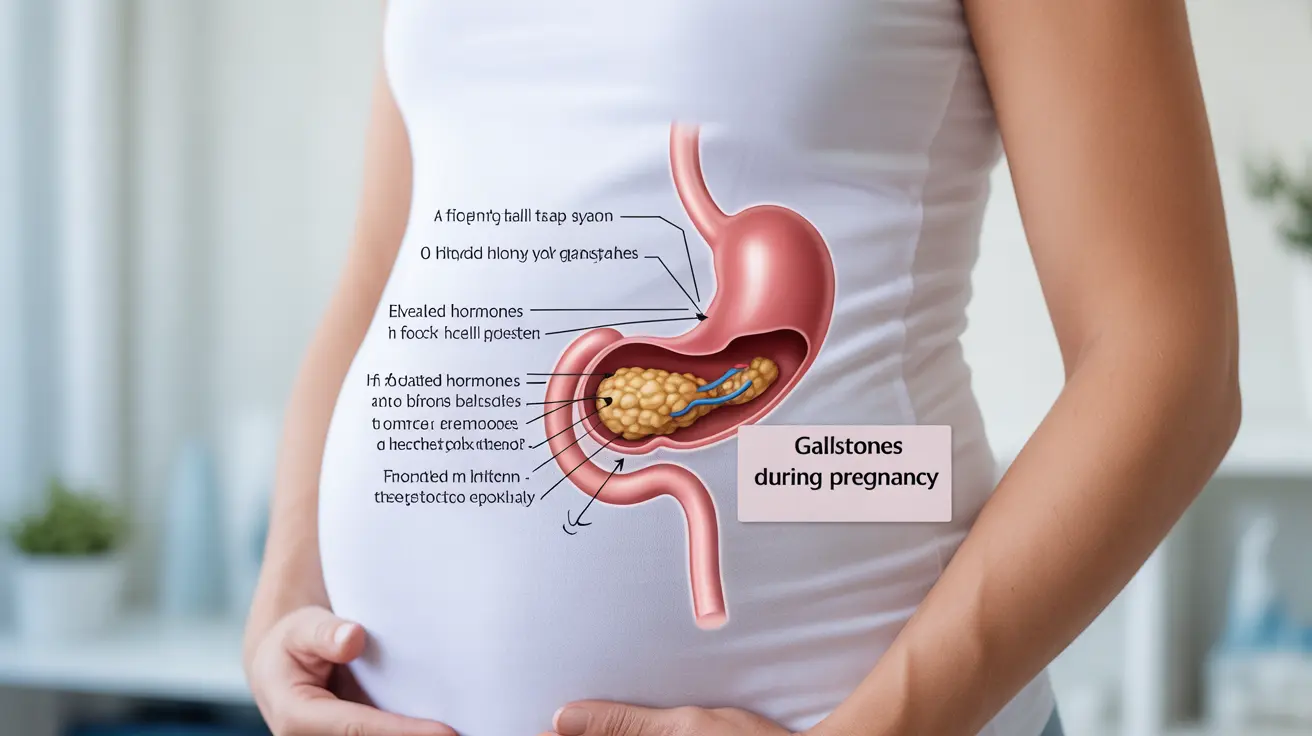Pregnancy brings numerous changes to a woman's body, and among these changes is an increased risk of developing gallbladder problems. Understanding these issues is crucial for expectant mothers to recognize symptoms early and seek appropriate medical care. This comprehensive guide explores the connection between pregnancy and gallbladder health, helping you navigate this important aspect of maternal wellness.
How Pregnancy Affects Your Gallbladder
During pregnancy, hormonal changes significantly impact gallbladder function. Elevated estrogen and progesterone levels can cause the gallbladder to empty more slowly, increasing the likelihood of gallstone formation. Additionally, pregnancy-related weight gain and altered cholesterol metabolism contribute to these complications.
Common Gallbladder Problems During Pregnancy
Gallstones
Gallstones are the most frequent gallbladder issue during pregnancy. These small, hard deposits form when bile components crystallize in the gallbladder. Pregnant women are particularly susceptible due to increased cholesterol production and decreased gallbladder motility.
Cholestasis
Pregnancy-related cholestasis occurs when bile flow becomes restricted. This condition can develop independently or alongside gallstones, potentially causing intense itching and other uncomfortable symptoms.
Recognizing the Warning Signs
Early detection of gallbladder issues is vital for proper management. Common symptoms include:
- Sharp pain in the upper right abdomen
- Nausea and vomiting
- Intolerance to fatty foods
- Back pain between the shoulder blades
- Sudden onset of severe abdominal pain
- Yellowing of the skin or eyes (jaundice)
Treatment Options During Pregnancy
Managing gallbladder problems during pregnancy requires careful consideration of both maternal and fetal health. Treatment approaches may include:
Conservative Management
For mild cases, doctors often recommend dietary modifications and close monitoring. This approach focuses on preventing complications while avoiding unnecessary interventions during pregnancy.
Surgical Intervention
In severe cases, laparoscopic cholecystectomy (gallbladder removal) may be necessary. This procedure is generally safe during the second trimester when risks to both mother and baby are lowest.
Prevention Strategies
While not all gallbladder issues can be prevented, certain lifestyle modifications can help reduce risk:
- Maintaining a healthy pregnancy weight gain
- Eating a balanced, low-fat diet
- Staying well-hydrated
- Getting regular, moderate exercise
- Avoiding rapid weight changes
Frequently Asked Questions
What are the common symptoms of gallbladder issues during pregnancy?
Common symptoms include sharp upper right abdominal pain, nausea, vomiting, and intolerance to fatty foods. Some women may also experience back pain and jaundice in severe cases.
How are gallstones and cholestasis treated safely while pregnant?
Treatment depends on severity. Mild cases are managed through diet modification and monitoring, while severe cases may require surgery, typically performed during the second trimester when it's safest for both mother and baby.
Why does pregnancy increase the risk of developing gallstones?
Pregnancy increases gallstone risk due to elevated hormone levels, particularly estrogen and progesterone, which slow gallbladder emptying. Changes in cholesterol metabolism and pregnancy-related weight gain also contribute to stone formation.
Can gallbladder problems during pregnancy cause complications for the baby?
Untreated severe gallbladder problems can potentially affect fetal development and increase the risk of preterm labor. However, with proper medical management, most pregnant women with gallbladder issues deliver healthy babies.
What lifestyle changes can help prevent gallbladder problems during pregnancy?
Preventive measures include maintaining healthy weight gain, eating a balanced diet low in saturated fats, staying hydrated, and engaging in regular, moderate exercise as approved by your healthcare provider.




